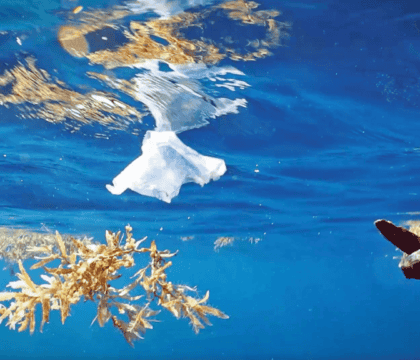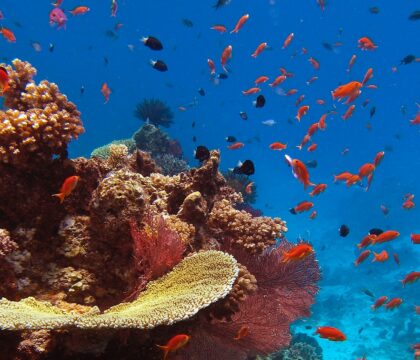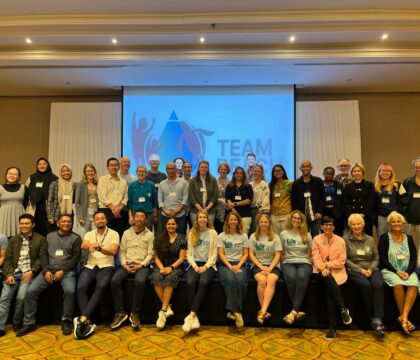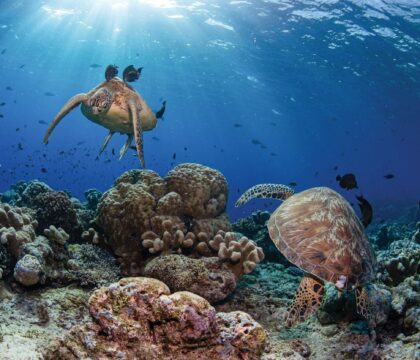August 20, 2020 • News Announcements, Program Updates
In 2014, Oceanic Society launched an innovative program that aims to bridge the gap between ocean awareness and ocean action by applying behavior change science to our work in ways that lead people to engage in meaningful daily actions for ocean conservation. The program, called Blue Habits, has been developed over the last six years in partnership with researchers from Stanford University and others, and is now entering its third phase.
In Blue Habits Phase I (2014-2016) we collaborated with leading behavioral science experts at Stanford University to evaluate the potential of our whale-watching cruises to facilitate behavior change. We examined visitor demographics, experiences, knowledge, and motivations before and after the tour, and developed preliminary recommendations for how we might alter the experience to lead to more consistent and meaningful environmental action post-tour. Read more here.
Designing and Testing New Behavior Change Techniques
More recently, we completed Blue Habits Phase II (2017-2020), during which we formally developed, tested, and refined new techniques to drive behavior change through the whale watching experience. We began by convening a “design-thinking” workshop at Stanford’s d.school with an interdisciplinary group of 25+ participants to collaboratively explore and prototype behavior change techniques. In collaboration with our partners at Stanford, we further refined those prototypes and developed two main behavior change approaches that we tested in a real-world trial over a period of six-months during 2019.
Results From Our Field Tests: It Worked!
Excitingly, we found that Oceanic Society whale watching tours that incorporated the new Blue Habits methods resulted in statistically significant increases in passengers’ “sense of ocean identity,” “connection between environmental consequences and personal responsibility”, and “willingness to engage in plastic reducing behaviors” in compassion to our standard tours. Importantly, the new methods required only simple, low cost changes to the way we run our trips. Those included new activities that encourage participants to meet and interact during the experience to create a greater sense of community, as well as simple adjustments to our messaging before, during, and after the tour. These exciting findings have important implications for the global whale watching industry, which serves more than 13 million people annually in at least 119 countries, and has been largely untapped as a tool to drive personal engagement in environmental action.
How it Works: Principles from Behavioral Science
Behavioral science shows that peoples’ habits and behaviors are closely linked to their personal identity, and that identity is shaped by our social relationships. Social norms also play a critical role in shaping individual behavior. In short, people are more likely to do things that they see other people doing, especially those that they are close to and/or look up to. The Blue Habits methodology derives from these core principles, and aims to influence identity as well as build a sense of community among our passengers that strengthens pro-ocean behavioral norms.
The Blue Habits methodology consists of a suite of targeted communication techniques and “interventions” that are delivered before, during, and after a nature-based tourism experience, and are designed to influence passengers at key moments, to ensure repetition of our messages, and to build long-term networks to sustain behavior commitments, like reducing plastic waste, choosing sustainable seafood, or reducing carbon footprint.
What’s Next for Blue Habits?
With the Blue Habits methodology developed and proven effective on Oceanic Society’s whale watching tours, we have already formally incorporated the methods into all of our whale watching trips since late 2019. We have also adapted the methods to suit the format of our international expeditions, and began trial implementation in late 2019. We are currently on track to reach more than 3,000 passengers annually with Blue Habits programming.
Beyond Oceanic Society’s travel programs, we are currently seeking partners within the whale watching industry to test and implement these same methods aboard their trips, with the goal to reach at least 86,000 passengers annually beginning in 2021. We are also developing our online Blue Habits community to support traveler engagement in ocean conservation well beyond the end of the tour, and to support behavior change efforts targeting online audiences more broadly.
Stay tuned for more as we continue to roll-out Phase 3 of Blue Habits!




